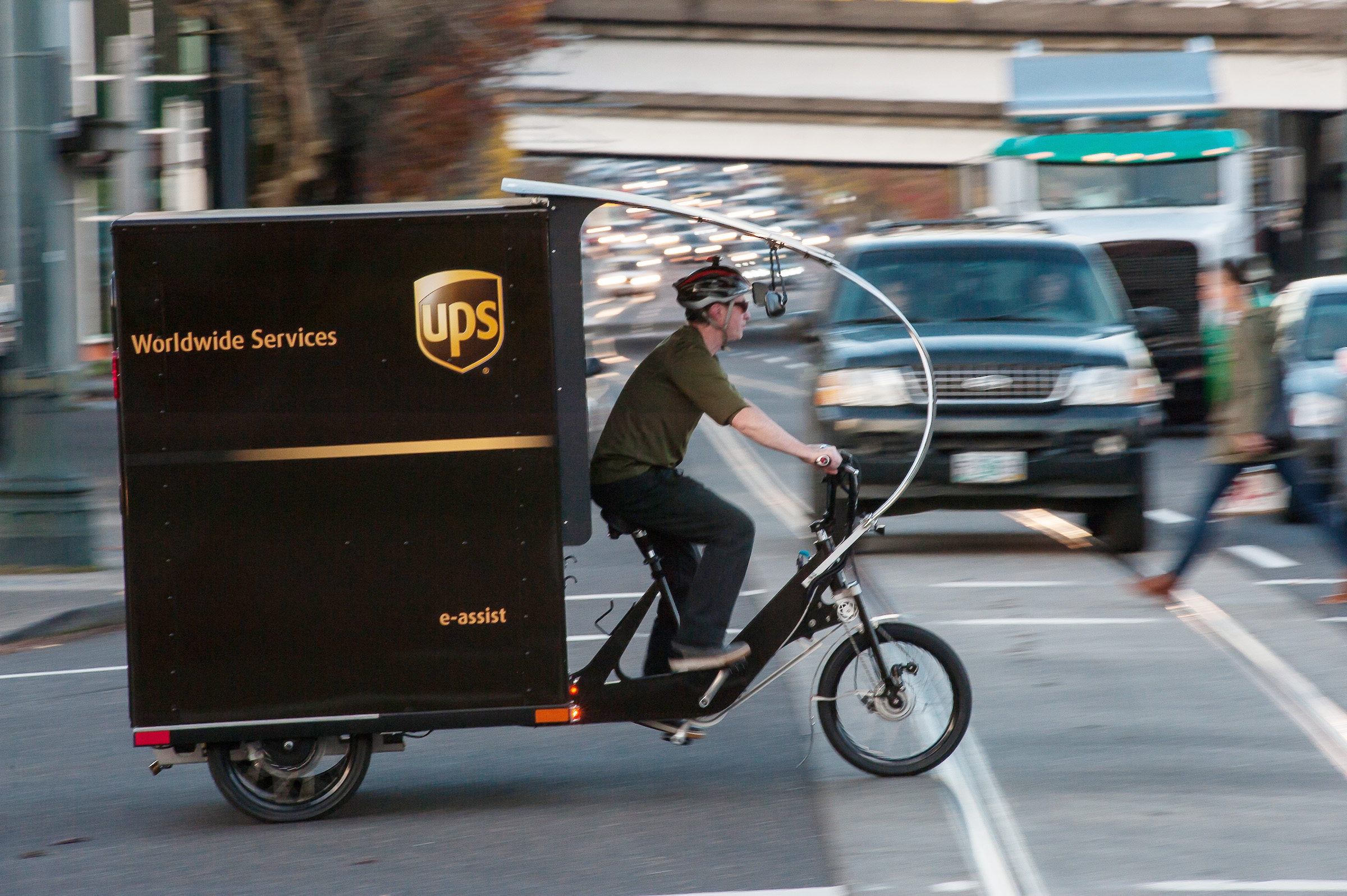The city will unveil its long-awaited baby step into reducing congestion from delivery trucks with a pilot program that will help Amazon, DHL, UPS and other package-trucking companies deploy nimble cargo bikes instead of massive vehicles to make deliveries, Streetsblog has learned.
Details are scant (and will apparently be leaked to the Times in a few hours — indeed, it and was, here, on Wednesday morning), but for now, Streetsblog has gleaned that the DOT will announce on Wednesday that it will create curbside space for cargo bike parking in an effort to reduce the number of big trucks that are flooding New York City streets in the age of online shopping.
A source told Streetsblog that Whole Foods — an Amazon subsidiary — is also involved in the pilot program.
UPS and other delivery companies have told Streetsblog in the past that they hoped to deploy cargo bikes in New York City — and would have already if they could work out some logistical issues, such as where big trucks could park and distribute smaller loads of packages to awaiting cargo bike messengers.
UPS does just that in Seattle, where it launched its sexy "modular package delivery trailers" last year.
The announcement comes as city officials are increasingly under pressure to do something to ease congestion, partly caused by two major trends that regulators didn't see coming and waited years before taking action: the rise of Uber and Lyft-style taxi services and the advent of online shopping, which now involves more than a million packages delivered every day.
Those delivery trucks need to park somewhere — and most do it illegally. Years ago, when such companies were ticketed for improper parking, many would fight the tickets, tying them up in court, where judges would often reduce them or relieve them entirely. The Bloomberg Administration created the Stipulated Fine Program to automatically reduce the cost of scores of tickets that were common for delivery companies. That program, which costs the city $23 million a year in lost ticket revenue, is now increasingly under fire as opponents say it encourages the worst behavior of the delivery firms: parking in bus lanes, parking in bike lanes, and double-parking, not to mention all the congestion, pollution and carnage they cause.
The use of cargo bikes could certainly help with all those problems.
"[It] will reduce congestion ... by reducing truck dwell time, instances of double-parking and other unintended consequences associated with downtown deliveries," UPS said in a statement when it launched the Seattle program last year.
The bikes feature a battery-powered electric motor that helps with pedaling. The modular cargo section can hold 400 pounds.
But, of course, the mayor will likely be under fire for greasing the wheels for corporations to use electrified bikes while still cracking down on delivery workers.
Yet again @NYCMayor's gov't is rolling out another #ebike program for corporation while at same time continuing to criminalize immigrant delivery workers for their ebikes. @NYGovCuomo needs to sign state ebike bill to stop enabling de Blasio's tale of 2 ebikes. #DeliverJustice https://t.co/dAF8RV3Ncm
— Do Jun Lee 이도준 (@dosik) December 4, 2019
— with Gersh Kuntzman






